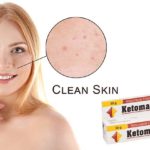When not to do it
It is not recommended to follow a treatment with hyaluronic acid in the following cases: pregnancy, tendency to develop hypertrophic scars, hypersensitivity to the product, presence of wounds, burns or eczema.
Hyaluronic acid treatments Benefits and effects
Hyaluronic acid treatments
It is important to note that hyaluronic acid is not an aesthetic treatment in itself, it is simply a substance that can serve as the basis for different treatments and procedures, such as fillers, transdermal administration, bio-revitalization and bio-stimulation.
Next, we will look at its uses and benefits:
Face products
Also called dermal fillers, they may be resorbable or permanent. Currently, resorbable fillers are often used as they have a temporary effect and are generally composed of hyaluronic acid, collagen, and calcium hydroxyapatite.
Small anti wrinkle injections are made directly in the area to be treated, generally in the wrinkles and furrows of the face, but also in the lips, nose, cheekbones, and chin.
Its effect is immediate and lasts from 2 to 18 months depending on the area, the product used and the physiological characteristics of the patient.
Body filler
As we have seen, hyaluronic acid-based fillers can fill and increase volume in various areas. This property is effective for the lips or cheekbones, as well as other larger areas of the body, such as the buttocks and calves.
It can also be used to improve scars due to accidents or increase penis size. However, not all doctors recommend performing this type of infiltration in these areas of the body.
If you are looking to combat the initial signs of ageing, then hyaluronic acid and similar skin treatments can be a great first step. Before you do anything, consult your regular doctor and explain your plan. Your doctor will be able to advise you on the best course of action.
Isn’t it time you looked as young as you feel?













